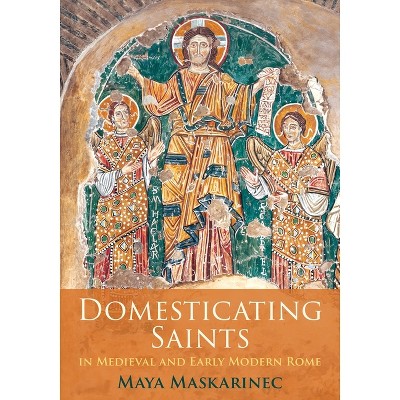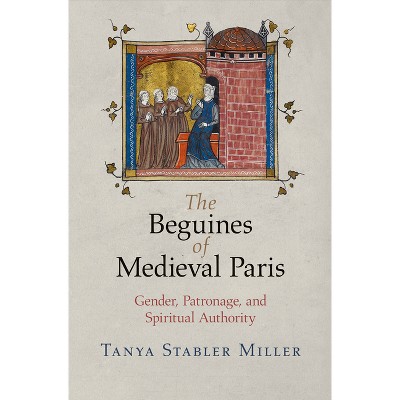Sponsored

Affective Meditation and the Invention of Medieval Compassion - (Middle Ages) by Sarah McNamer (Hardcover)
In Stock
Sponsored
About this item
Highlights
- Affective meditation on the Passion was one of the most popular literary genres of the high and later Middle Ages.
- About the Author: Sarah McNamer is Associate Professor of English at Georgetown University.
- 320 Pages
- History, Europe
- Series Name: Middle Ages
Description
About the Book
This book offers a new history of a major medieval genre, affective meditations on the Passion. It argues that women were instrumental in the creation of this genre, and it illuminates how these scripts for the performance of prayer served to construct compassion itself as an intimate and feminine emotion.Book Synopsis
Affective meditation on the Passion was one of the most popular literary genres of the high and later Middle Ages. Proliferating in a rich variety of forms, these lyrical, impassioned, script-like texts in Latin and the vernacular had a deceptively simple goal: to teach their readers how to feel. They were thus instrumental in shaping and sustaining the wide-scale shift in medieval Christian sensibility from fear of God to compassion for the suffering Christ.
Affective Meditation and the Invention of Medieval Compassion advances a new narrative for this broad cultural change and the meditative writings that both generated and reflected it. Sarah McNamer locates women as agents in the creation of the earliest and most influential texts in the genre, from John of Fécamp's Libellus to the Meditationes Vitae Christi, thus challenging current paradigms that cast the compassionate affective mode as Anselmian or Franciscan in origin. The early development of the genre in women's practices had a powerful and lasting legacy. With special attention to Middle English texts, including Nicholas Love's Mirror and a wide range of Passion lyrics and laments, Affective Meditation and the Invention of Medieval Compassion illuminates how these scripts for the performance of prayer served to construct compassion itself as an intimate and feminine emotion. To feel compassion for Christ, in the private drama of the heart that these texts stage, was to feel like a woman. This was an assumption about emotion that proved historically consequential, McNamer demonstrates, as she traces some of its legal, ethical, and social functions in late medieval England.
Review Quotes
"A major book that offers a wide range of literary, religious studies, and historical scholars a new narrative for a familiar cultural transformation."-- "Andrew Galloway, Cornell University"
"Brilliant and lucid. . . . a stunning book"-- "Common Knowledge"
"Elegantly written and boldly conceived, Affective Meditation and the Invention of Medieval Compassion invites us to think more deeply about where compassion comes from, how it has to do with gender, and what it produced."-- "Journal of Religious Cultures"
"In her rich and provocative study, Sarah McNamer provides some novel, sometimes polemical answers. . . . A must-read for any student of late medieval religion or literature-deeply thoughtful, wide-ranging, and superbly written, a model of what the new history of emotions can do for medievalists."-- "Journal of English and Germanic Philology"
"McNamer is doing nothing less than writing a new history of medieval affective spirituality."-- "Speculum"
"Sarah McNamer's book offers a series of salutary exercises in rethinking. . . . The reader is treated to a skillful, often convincing, reassembly of well-known elements. What emerges each time is an entirely novel thesis that challenges standard literary history."-- "American Historical Review"
"This nuanced exploration of devotional meditation on Christ's Passion by medieval Christians combines detailed archival research with theologically astute analysis of the Passion's depiction in devotional books and visual art."-- "Choice"
About the Author
Sarah McNamer is Associate Professor of English at Georgetown University.Shipping details
Return details
Frequently bought together


Trending Non-Fiction















